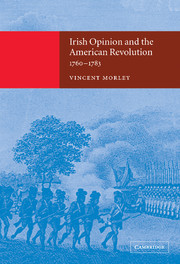1 - Imperial unrest, 1760–1775
Published online by Cambridge University Press: 17 July 2009
Summary
The early years of George III's reign were a time of profound change throughout the British empire. The euphoria produced by victories over France in Canada and India in 1759, and over Spain in Cuba and the Philippines in 1762, together with the optimism inspired by the accession of a young ‘patriot king’ in 1760, faded as the problems of administering an enlarged empire became apparent. In the west, the old Anglophone and Protestant colonies no longer felt constrained by the threat of a French presence in Canada, while the administration of new Francophone and Catholic subjects presented government with novel dilemmas. The acquisition of an eastern empire likewise raised new questions concerning relations between the crown and the East India Company, as well as fears about the corrupting effects of an influx of ‘nabob’ wealth on the British body politic. In Britain itself, the new monarch's intention of drawing a veil over past dissensions in the interests of national unity successfully integrated the Tory squirearchy into the political establishment after forty-five years of exclusion, but only at the cost of alienating sections of the Whig élite and setting alarm bells ringing in patriot circles. Ironically, the same policy of political inclusiveness facilitated the return of Charles Lucas to Ireland, an event that contributed greatly to the reanimation of the patriot opposition.
- Type
- Chapter
- Information
- Irish Opinion and the American Revolution, 1760–1783 , pp. 40 - 96Publisher: Cambridge University PressPrint publication year: 2002

